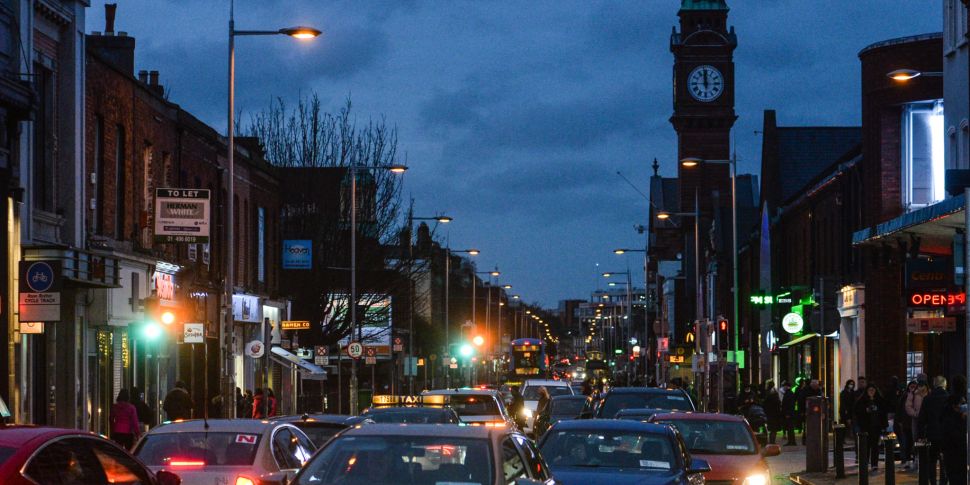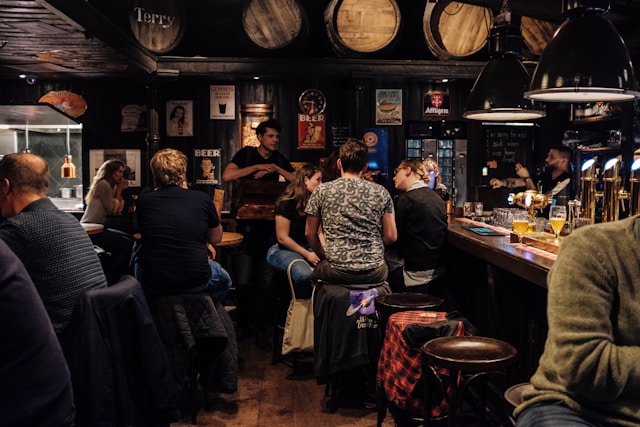Beyond Temple Bar: A Local’s Guide to Authentic Irish Pub Experiences
Visiting Ireland offers the chance to experience the warmth of traditional Irish hospitality, and there’s no better place to do this than in an authentic Irish pub.
Pubs are the heartbeat of Irish culture, where locals and visitors gather to enjoy hearty food, great brews, and lively music sessions known as céilís. However, not all pubs deliver the same experience—some are more focused on catering to tourists, often charging higher prices and offering a diluted version of Irish tradition.
If you’re looking to experience a genuine Irish pub, here are some helpful tips to guide you to the right places and avoid tourist traps.
1. Avoid Tourist Hotspots

Looking for a good nightout that’s accessible from your hotel in Dublin? While iconic spots like Dublin’s Temple Bar district have their charm, they are often crowded and come with inflated prices. For a more authentic experience, venture into the neighborhoods or smaller towns.
Pubs in neighbourhoods like Smithfield, Portobello, Stoneybatter, and Rathmines can offer a more intimate and traditional feel. Even in the city centre, you can find great local pubs by stepping outside the main tourist zones.
2. Look for Local Brews, Not Just Global Brands
A good traditional Irish pub will proudly offer local craft beers, ales, and stouts on tap alongside big-name options like Guinness. To get an authentic experience, try to find pubs that feature local breweries from the region.
For example, pubs in Cork may serve Murphy’s or Beamish, while Galway has its own craft brews like Galway Bay Brewery. Ask the bartender for their recommendation of a local beer to get a taste of the region.
3. Traditional Irish Music Sessions
:max_bytes(150000):strip_icc()/5789320947_2fa7bfdd81_b-48378dccdca74c13a1bd01b964e2e692.jpg)
Music is a vital part of Irish pub culture, and authentic pubs often host live traditional music sessions featuring fiddles, tin whistles, and bodhráns. These sessions are typically informal, with musicians gathering in a corner, playing classic Irish folk tunes.
To spot a pub with a good music scene, check local listings or ask around for trad music nights. Be cautious of tourist-heavy pubs that advertise “traditional music” every night, as these performances can sometimes feel overly rehearsed and lack the spontaneous magic of an impromptu session.
4. Authentic Food Menus

An authentic Irish pub should offer more than just drinks—food plays an essential role in the experience. Look for pubs that feature hearty, traditional Irish dishes like stew, coddle, boxty, and soda bread, made with fresh local ingredients.
Avoid places that rely heavily on a generic menu full of international pub staples like burgers and chicken wings. Locals often know where the best pub grub is, so don’t be afraid to ask them for a recommendation.
5. Check for a Mix of Locals and Visitors
The crowd can tell you a lot about a pub. If the place is filled exclusively with tourists, it might be more focused on providing a “staged” Irish experience, with higher prices to match. A great Irish pub will attract a good mix of locals and visitors.
Try walking a bit further from major tourist attractions, where you’re more likely to find pubs frequented by residents. In smaller towns and villages, local pubs are often the most authentic spots, where you’ll find people from the community enjoying a pint.
6. Check Online Reviews but Trust Your Instincts
Online reviews are a helpful tool, but keep in mind that some highly-rated pubs might cater heavily to tourists. Look for places that have consistently positive reviews from locals or long-term visitors.
Additionally, it’s worth paying attention to how recent reviews are, as a pub can change in atmosphere, ownership, or quality over time. When in doubt, trust your gut—if a pub feels like a genuine gathering spot for locals, it probably is.
7. Avoid Pubs with Overpriced Souvenirs

Some pubs may double as gift shops, selling mass-produced souvenirs or branded merchandise like t-shirts, mugs, or novelty leprechaun hats. While there’s nothing wrong with picking up a memento, pubs that focus too much on selling souvenirs are often more tourist-oriented.
The best pubs are those where the focus is on the atmosphere, drinks, food, and conversation—not on pushing expensive trinkets.
8. Look for Family-Owned or Long-Established Pubs
Many of the best traditional Irish pubs have been family-owned for generations. These establishments often have a rich history and a strong connection to the local community, offering an authentic atmosphere and personal touch that larger, corporate-owned pubs may lack.
Long-established pubs, some of which have been around for over a century, tend to value tradition, ensuring that the food, drink, and service remain consistently high in quality.
9. Be Friendly and Chat with the Locals
Irish pub culture thrives on friendliness and community spirit. Don’t be shy about striking up a conversation with the locals or bartenders—they can offer great insights into the best drinks to try, the history of the pub, or where to find an upcoming céilí.
The warmth of the Irish people is often one of the best parts of visiting a pub, and making new friends at the bar can lead to an even richer experience.
10. Trust Word of Mouth

One of the most reliable ways to find a great Irish pub is through word of mouth. If you’re staying in a local B&B or guesthouse, ask your host where they go for a pint. Often, locals will direct you to hidden gems that aren’t as widely advertised or written about but offer a truly authentic experience.
The key to finding an authentic experience is to step off the beaten path, embrace local recommendations, and avoid tourist traps that prioritize profit over tradition. And don’t forget, a friendly smile and a conversation with the locals can make your visit even more memorable. Sláinte!
Author Bio: Carmina Natividad is a passionate travel blogger who dreams of managing her very own hotel. This free-spirited damsel loves to share her insights about travel, lifestyle, personal finance, and business. To know more about hotels and travel blogs, you may visit Aspect Hotel Park West Dublin.



